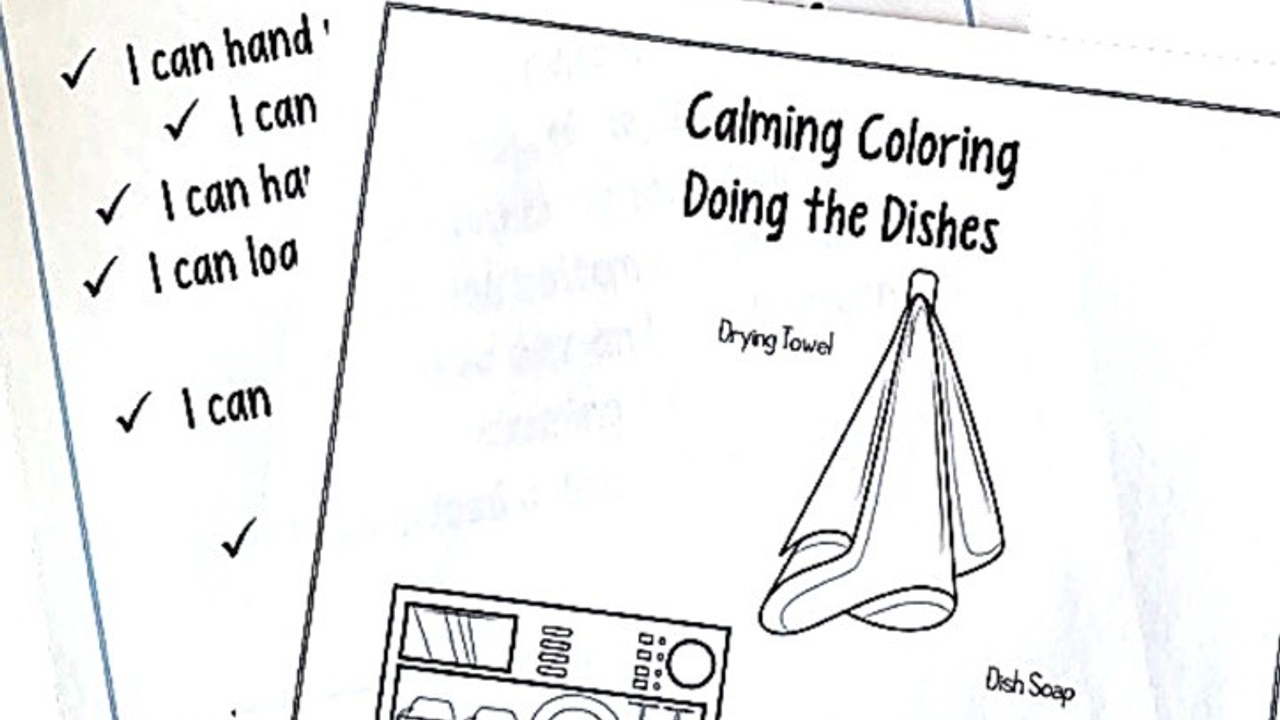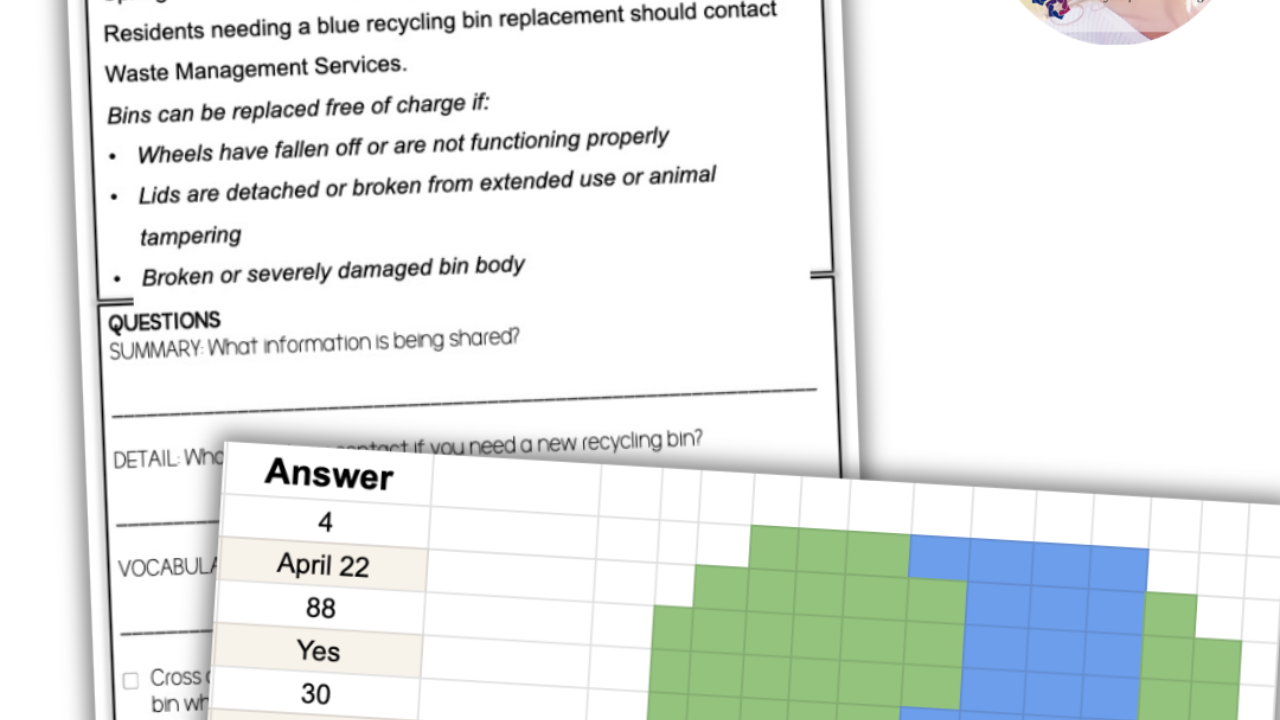Teaching Life Skills: Washing the Dishes [Special Education]
Dec 06, 2021
If you eat, you create dirty dishes. Since we all eat, about 3 times a day, we are bound to create at least 10 dirty dishes.It's the skill that can be an independent work task (like after eating a quick lunch) or whole group activity (like during holiday meals with family).
Teaching your students how to ‘do the dishes’ (wash, rinse, dry, put away, and load/unload a dishwasher) can show them that dishes is a part of the cooking process, a part of the everyday household chores list, and that clean dishes don’t just appear magically in the cabinet!
-Supplies needed to clean dishes
-Purpose of the supplies
-Order of steps when cleaning dishes in a sink
-How to fill a dishwasher
-How to hold dishes when drying them with a towel
-How to clean dishes that are dirty
-How to rinse a dish after it has been scrubbed
Why Focus On These Essential Life Skills
Regardless of age and ability level, every student will create a dirty dish. Regardless of if they live at home with family or in the community, every student will create a dirty dish. Since dirty dishes come with eating, it is natural to focus time in your teaching schedule to explicitly cover this skill.
Washing dishes involves slippery, soapy water, a high-interest sensory activity for some students. Drying the dishes is an important skill to address because of safety with sharp edges and heavy, breakable cookware. Putting away clean dishes is a great way for students to contribute at home and is a skill they may use in a vocational setting.
When To Teach
Teach dishwashing skills whenever it fits into your teaching schedule anytime throughout the school year. From small group to whole class or part of an activity- life skills center rotation, teaching students how to wash dishes is always relevant. There is no rush, but be sure to inform families when you have covered the content so they know to start encouraging their students to help wash dishes or load/unload the dishwasher in the home setting. It is important to transfer the skills they have learned in the school setting to the home setting and this is a skill that families will be happy to have help with!
I’ve created a complete lesson unit of materials for teaching this topic.T. he materials are comprehensive (5 full lessons) and most appropriate for life skill lessons for a variety of grade levels, including middle school, high school and transition level special education students. Below are some lesson unit highlights!
Students will hand wash dishes by soaking, scrubbing, cleaning and rinsing.
Students will hand dry dishes using a towel.
Students will load and unload a dishwasher by placing dishes in the machine for maximum cleaning.
Potential IEP Goal Language
By (month, year), (student) will learn the steps to wash dishes (plate, cup, silverware, pot/pan, larger cookware) clean of leftover food and hand dry using a towel with (#) or less prompts.
By (month, year), (student) will learn the steps to load/unload a dishwasher by placing dishes for maximum cleaning with (#) or less prompts.
Lesson Vocabulary
Cleaning tab, detergent, dish soap, dishwasher, dry, drying rack, facing, rinse, scrub, sponge
-
Pre and Post assessment
-
1 page narrative explaining the skill with and without visual text supports (to incorporate functional reading)
-
5 skill practice activities to learn and/or reinforce the focus skills
-
Game for students to practice their skills (because learning is fun)
-
Boom Cards (task cards) for practice or assessment (which can also be accessed in a traditional print version)
-
Student survey / learning reflection worksheet (thumbs up or down)
-
Encouraging on-topic quotes (use as a classroom poster or starter for each class period)
-
5 strategies for success (tips for being successful with the focus skills)
-
Coloring page with on-topic graphics
-
Skill mastery certificate
-
Data collection sheet on specific focus skills
-
Homework sheet to encourage students to practice the skill outside of the school setting
-
Word search of key vocabulary terms
-
Visual supports for focus skills with age-appropriate colors and graphics
This lesson unit resource is great as a stand-alone unit, but is part of a larger cooking and cleaning life skills lesson big bundle.
Ultimate Goal
Similar to cleaning and laundry, doing the dishes is a buildable skill. There are so many layers that every student can contribute in some way. The ultimate goal for one student might be to take the dishes out of the dishwasher and another student it might be to hand wash all the dishes from a family meal. Worry less about objective mastery and start with where your students are and try to build in the next logical skill that would help them contribute to their home while safely increasing their independence.



















